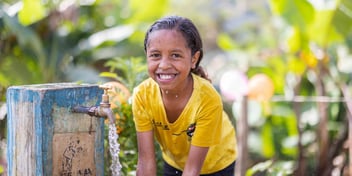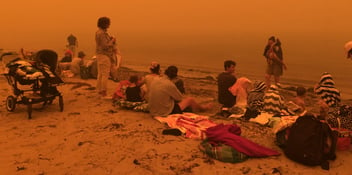Bottled water levy on cards for global sanitation
If we collected one cent for every litre of bottled water sold worldwide we could make massive progress towards achieving the United Nation’s global development goal on water and sanitation.
That's the concept behind the proposed Global Investment Fund for Water (GIFF Water), which has just received financial support for a feasibility study from the Rockefeller Foundation.
The micro-levy is the brainchild of founder of Duncan Goose, also founder of philanthropic business Global Ethics Limited, which owns the bottled water brand, One.
“We have tested the concept for a one cent per litre contribution from the global bottled water sector with bottlers, retailers, government and civil society, and have been delighted with the response so far,” he said.
“If we can harness a fraction of the money generated by bottled water and drinks – and work out how to use that money wisely – it could make a significant contribution to ensuring everyone has access to clean water and sanitation worldwide.”
The global bottled water industry is worth $157 billion dollars.
“By leveraging one cent per litre of bottled water sold, a Global Investment Fund for Water could create a fund in excess of $3 billion per annum, generating a substantive new financial resource to begin to fill the water financing gap,” GIFF Water wrote.
The lead consultant on the feasibility study is Oshun Partnership's Sarah Beeching, who has worked on global partnerships and innovative finance for nutrition, education and health.
“The question of financing for many global development challenges typically starts with the problem, and then tries to find innovative ways to raise the funds needed to address it,” she said.
“In contrast, this project begins with a potential revenue stream, and seeks the most impactful use for it.”
Ensuring the availability and sustainable management of water and sanitation for all is the sixth UN Sustainable Development Goal for 2030.
GIFF Water points to the 2014 UN-Water Global Analysis and Assessment of Sanitation and Drinking-water, which found that 80% of countries reported current levels of financing were insufficient to meet targets for drinking water and sanitation.


